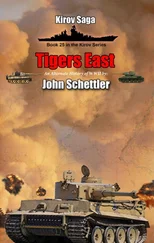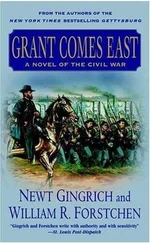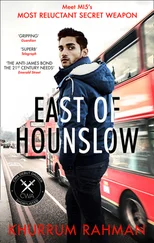Boyle Coraghessan - East is East
Здесь есть возможность читать онлайн «Boyle Coraghessan - East is East» весь текст электронной книги совершенно бесплатно (целиком полную версию без сокращений). В некоторых случаях можно слушать аудио, скачать через торрент в формате fb2 и присутствует краткое содержание. Жанр: Старинная литература, на английском языке. Описание произведения, (предисловие) а так же отзывы посетителей доступны на портале библиотеки ЛибКат.
- Название:East is East
- Автор:
- Жанр:
- Год:неизвестен
- ISBN:нет данных
- Рейтинг книги:5 / 5. Голосов: 1
-
Избранное:Добавить в избранное
- Отзывы:
-
Ваша оценка:
- 100
- 1
- 2
- 3
- 4
- 5
East is East: краткое содержание, описание и аннотация
Предлагаем к чтению аннотацию, описание, краткое содержание или предисловие (зависит от того, что написал сам автор книги «East is East»). Если вы не нашли необходимую информацию о книге — напишите в комментариях, мы постараемся отыскать её.
East is East — читать онлайн бесплатно полную книгу (весь текст) целиком
Ниже представлен текст книги, разбитый по страницам. Система сохранения места последней прочитанной страницы, позволяет с удобством читать онлайн бесплатно книгу «East is East», без необходимости каждый раз заново искать на чём Вы остановились. Поставьте закладку, и сможете в любой момент перейти на страницу, на которой закончили чтение.
Интервал:
Закладка:
He was back in Kyoto, eleven years old—a man, his ojisan said. His grandmother was at work, and he and Grandfather were watching TV, an American show in which a collie dog with hora saves a straw-haired boy from the dangers of ten lifetimes, week after week, in a neat half-hour format. “Grandfather,” Hiro asked, “tell me about my mother.” Grandfather’s legs were thin as fence posts beneath the folds of his yukata. They were sitting side by side on the tatami floor. Dressers crammed with clothing, soap, thread, mirrors and combs and all the other odds and ends of a household mounted the walls, one atop the other. “Nothing to tell.” His grandfather shrugged.
“She died,” Hiro said.
Grandfather studied him. On the TV, a long snaking line of bare-chested Aryan men stood on a beach, lifting mugs of Kirin draft to their lips in perfect synchronization. “She died,” he agreed. And then, because Hiro was a man now and because of the moving shadows the TV cast on the wall and because he was old and he needed to, Grandfather told him the story, and he spared nothing.
Sakurako was a failure. Some demon seed had got into her and she gave up her studies, the possibility of a decent marriage and family, the love and respect of her parents, for foreign music—and finally, a foreign husband. A hippie. An American. When he deserted her, as Grandfather knew he would, she sank into a shame worse than miscegenation, worse than the murder of her family. She became a bar hostess, “mama-san” to a hundred men. When she wheeled her bicycle through the old streets of Kyoto, her half-breed infant strapped to her back, people stopped to stare. She was doomed and she knew it. Worse: her child was doomed too. He was a happa, a gaijin, forever an outcast. Her only recourse was to go to America, to find Doggo and live there among the American hippies in a degradation that knew no hope or bottom. She had no money, no passport, no hope or knowledge of her hippie husband. She tried to come home. Grandfather barred the door.
Eleven years old, his hair cropped close and his eyes like two tortoiseshell beads, Hiro sat riveted. The television spoke to him but he didn’t hear. He was that happa. He was doomed.
“And then,” ojisan said, “and then one night she did what she had to do.” Hiro knew in that moment what it was, the knowledge sinking into his blood like a stone in a pond, at once and forever engulfing the flimsy edifice of his grandmother’s lies. His mother hadn’t succumbed to some vague disease—always vague, never a name for it. No. She died by her own hand. But the shock of that sudden knowledge was a ripple compared with the rest of it: she’d tried to take Hiro with her, tried to commit oyako-sbinjü, parent-child suicide, and she’d failed even at that. He knew the gardens at the Heian shrine, didn’t he? his grandfather asked.
Hiro knew them well—his obāsan took him there to feed the koi in the pools and sit and contemplate the sculptured perfection of nature. The mouths—his grandfather spoke and he saw the mouths of the koi gaping at the surface.
And the bridge?
Hiro nodded.
One night, late—she was racked with an insomnia that fed on her shame—she came back drunk from her barroom and strapped the infant to her back. The gates to the shrine were closed, the shaven-headed monks long asleep. She propped her bicycle against the wall and hoisted herself over. In the dark she made her way to the low covered bridge and she lifted the infant from her back. Frantic, scolding herself in a nagging broken whisper, her breath coming in gasps, she fought her way back to the path and dislodged a rock, an ornamental boulder, tearing at it with her nails till the rocks beside it were painted with her blood. She pushed at the rock, strained against it, rolled and shoved and beat at it. Finally she worked it across the planks of the bridge to where the infant, where Hiro, lay sleeping. In a final mad superhuman effort she lifted the stone to the rail, forced it into the breast of her bargirl’s kimono, pinned the child to her and gave herself up to the inexorable pull of gravity and the black transfiguration of the water below.
Water. Hiro woke to it, rain on his face. His mother was dead, but he was alive, flung from her arm as she hit the water and caught up in the muck, the muck in which he was mired now, hopeless, screaming, and the bald-headed monks came running. He struggled to sit up. Lightning tore at the sky. The rain seethed across the water, leaden pellets of it, beating the surface to a froth, hammering at his cushion of mud. Monks, he thought, where were they when you needed them? And he began to laugh, wheezing, delirious, sick and starved and hunted, he laughed like a boy at a Saturday matinee.
But wait: what was that? Out there, beyond the trees and the crack of the storm? A voice. A human voice. The thunder rolled across the sky, harsh and angry. The lightning sizzled. But there it was again—he knew that voice. It was, it was—
“Hiro, Hiro Tanaka, can you bear me? It’s Ruth. I—Want—To—Help—You!”
Help me.
“Hiro. Listen to me. I—Want—To—Help—You!”
It was, it was—his mother, his haha, his mama!
He was on his feet, rain in his face, the silly grinning T-shirt swirling round him in tatters. “Mama!” he cried. “Mama!”
A silence, deep and expectant, a silence that reverberated over the swamp and through the storm. “Hiro?” the voice called and it came from everywhere, from nowhere, ubiquitous as the voice of an angel.
“Haha, haha!” he cried, over and over, till he was breathless, till he was cold, till his brain locked up on him and there was no other word in the language. And then he saw it, the boat breaking the mist as in a dream, coming toward him, the anxious white face in the bow—his mother, it was his mother, come for him at last—and behind her, crouched there at her side, hippie hair and hippie beard, he knew that face—it was Doggo, yes, Doggo, his own Amerikajin father.
And he stood there, in the rain, and he called to them, called till he was hoarse, called Mother, called Father.
Part III
Port of Savannah
Journalism
The day was high and clear, warm without being oppressive, and about as dry as Savannah gets. It was mid-September, the seasons grudgingly changing, the scorching humid endless days of high summer giving way to something milder, expectant, the rich long Indian summer that would push back autumn to the edge of winter. Ruth was unpacking, finding hangers for her things, clipping the tags from a new three-quarter-length Italian cloth coat with dolman sleeves and oversized buttons, and a drop-dead black-and-white suit that featured slashing triangles against a flowing field of parabolas. Saxby had called it a fish dress. Fish? she’d echoed, holding the skirt up for him to admire. They were in her room at Thanatopsis at the time and she was in her bra and panties, trying her new things on for him. It’s the scales, baby, he said, punching the sobriquet with all the lewd innuendo of a disc jockey. Is that all you ever think about? she’d responded and he’d said No, I’m thinking about something entirely different right now. Prove it, she said, and she dropped the skirt to the floor.
But now she was in Savannah, for the week, a guest in the glossy bright high-arching home of Dave and Rikki Fortunoff, a home that had been featured in the pages of Architectural Digest and the New York Times Magazine. Dave was a friend of her father’s from law school and he often stopped by the house when business brought him to Los Angeles—Ruth had known him all her life. Still, she hadn’t really wanted to stay with the Fortunoffs—they were thirty minutes by taxi from the hospital where Hiro was gradually regaining his strength, under guard, and refusing to speak to the press, the police or his speckle-faced tormentor from the INS—but the advantage of the arrangement was obvious: she could stay here for nothing. A hotel would have cost her sixty or seventy dollars a night, minimum, plus meals, and she didn’t have that kind of money. Not yet.
Читать дальшеИнтервал:
Закладка:
Похожие книги на «East is East»
Представляем Вашему вниманию похожие книги на «East is East» списком для выбора. Мы отобрали схожую по названию и смыслу литературу в надежде предоставить читателям больше вариантов отыскать новые, интересные, ещё непрочитанные произведения.
Обсуждение, отзывы о книге «East is East» и просто собственные мнения читателей. Оставьте ваши комментарии, напишите, что Вы думаете о произведении, его смысле или главных героях. Укажите что конкретно понравилось, а что нет, и почему Вы так считаете.











